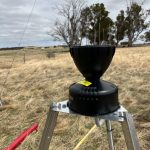
Producer Technology Uptake Program Progression Project
This project aims to increase the adoption of soil moisture probes and weather stations to provide farmers with data-based knowledge to support better decision-making during the season in response to seasonal drought and changing conditions across the Wheatbelt region of Western Australia (WA).
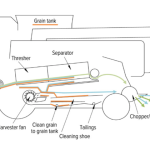
GRDC Harvester Set-Up Workshops
Grain losses during harvesting equate to significant lost income for growers across Australia every year.
To support growers in their efforts to reduce harvest losses and improve operations at harvest time, the Grains Research and Development Corporation (GRDC) has funded a multi-year national project ‘Optimising harvest losses, efficiency, and weed seed control; and capacity building for future delivery’ otherwise known as the Harvester Set-Up Project of which the Facey Group coordinates the Western Region workshops.
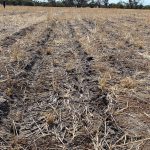
Visualising Australasia’s Soils: Extending the soil data federation (VAS Phase 2)
Visualising Australasia’s Soils: Extending the soil data federation (VAS Phase 2) Project Aim The Visualising Australasia’s Soils (VAS) project aims to provide Soil CRC participants
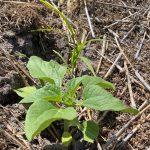
RiskWi$e Spring Cover Crop
RiskWi$e Spring Cover Crop Use of Spring-Sown Leguminous Cover Crops to Increase Available N Key Messages Investigating if spring-sown cover crops can mitigate on-farm nitrogen
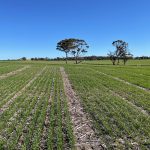
Summit Fertilizers 2023 Trials
Summit Fertilizers 2023 Trials SOP Tolerance, P is Key, N Products Project Summary As part of Summit Fertilizers commitment to trial research and their ongoing
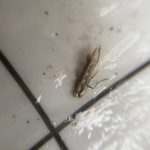
Diamondback Moth Surveillance
The aim is to improve prompt and effective decision support for growers to manage DBM in canola crops, surveillance is being conducted throughout the five WA port zones. We aim to determine the Brassica hosts which may be present during summer and autumn and assess whether these hosts are providing a DBM reservoir bridging between growing seasons.
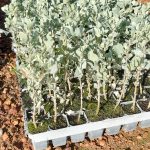
Saltbush Carbon Project
Saltbush Carbon Project Assessing the Potential of Saltbush to Sequester Carbon in WA Southwest Key Messages This project will investigate the carbon sequestration potential in
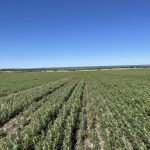
Ri$kWise Quantifying the Impact of Soil Amelioration on Nitrogen Fixation
A part of the GRDC founded RiskWi$e project the Facey Group is investigating if various soil amelioration treatments effect the rate of nodulation in lupins. Soil amelioration techniques that will be investigated are and Discorden On-Pass Finisher, K-Line Speedtiller, Clay application at 250 t/ha to 25cm and a Reefinator H4. This will ensure better understanding of the impacts of various soil amelioration practices and nodulation in lupins and may lead to further trials with other nitrogen-fixing crops on recently ameliorated soils.
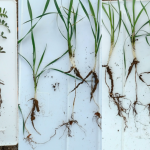
Long Coleoptile Project
Long Coleoptile Project Improving sowing opportunities for increased farm resilience in a changing climate. Key Messages: Changing climate patterns predict less in-season rain, more frequent
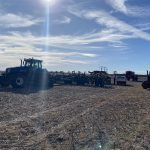
Soft Wheat Trial
Soft Wheat Trial Key Messages: Demand is growing in Asia for soft wheat. Facey Group region may be well placed to meet this growing market.
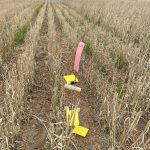
Impact of Stubble Height on Cropping Systems
Impact of Stubble Height on Cropping Systems Key Messages: This project is evaluating the ‘Stripper and Disc’ seeding and harvest combination (high residue systems) and
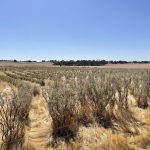
Saltbush and Novel Forage Understory Systems
Deep-rooted native shrubs or novel annual legumes offer significant opportunities to increase livestock feed supply and quality, compared to traditional forages under drought conditions. This CSIRO project will utilise both Anameka saltbush and novel understory species to demonstrate a drought-resilient and profitable system using best practices establishment.
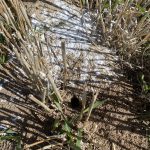
Mouse Surveillance Trial
Facey Group is supporting Farmanco, GRDC and CSIRO to have a better understanding of mouse populations during 2023.
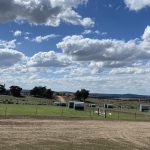
Confinement Feeding and Deferred Grazing
The Facey Group is collaborating with the local producers, Tom Wittwer & Audrey Bird, to demonstrate the production & economic benefits of confinement feeding pregnant ewes before lambing in this MLA funded project.
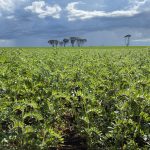
Grain Legume Project
This project aims to demonstrate yield potential of various legumes under two different times of sowing in the Kwinana West Port Zone. The trial component of this project will assess the impact of sowing time on a variety of chickpea, faba, pea and vetch varieties. The seeding times will consist of early sowing (~mid-April) and then a later sowing (~mid-May) and will integrate with the growers seeding program. The farmer demonstration component of this project will assess two different varieties of Faba beans for their yield potential. The two varieties differ in their resistance to fungal pathogens. The performance of the following year’s crops will be recorded for both sites.
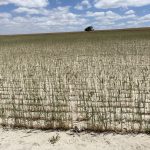
Plant Based Solutions to Improve Soil Performance
Facey Group is working with Soil CRC & Murdoch University to determine perennial & annual pasture/forage legume options for shaping rhizosphere processes to improve soil function, & ultimately improve grain yields on low fertility white sand soils.
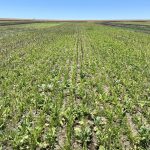
Summer Cover Cropping Project
Facey Group is evaluating four trial sites over the 2021-2022 summer to better understand how various cover crop species can benefit soil health, moisture and function, compared to summer fallow. In 2022, impacts on the growth and yield of subsequent winter crops will be investigated.




